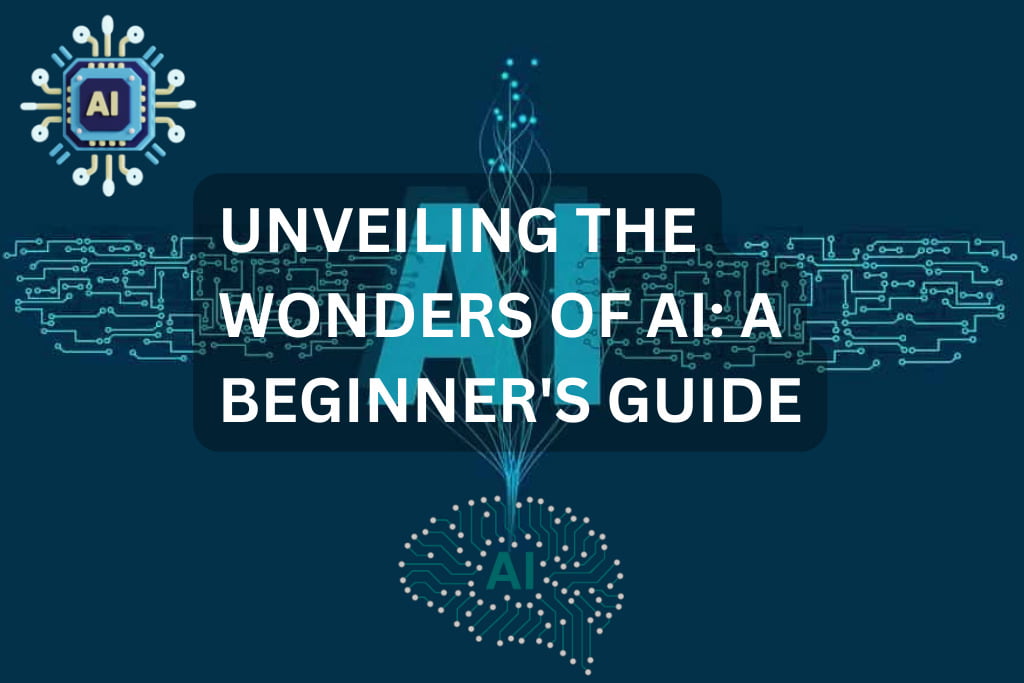Discover the fascinating world of Artificial Intelligence with this comprehensive beginner’s guide – your key to unlocking AI’s potential!
Table of Contents
Welcome to the fascinating world of Artificial Intelligence (AI). In today’s technology-driven era, AI plays a pivotal role in shaping our daily lives and transforming various industries. Let us embark on a journey to explore the history, current applications, benefits, challenges, ethical concerns, and future direction of AI, as well as delve into the intriguing question of whether a “Skynet” scenario is plausible.
Introduction to AI
Artificial Intelligence, commonly referred to as AI, encompasses the development of intelligent systems that can perform tasks typically requiring human intelligence. Machine learning, a branch of AI, enables machines to analyze data, detect patterns, and make decisions without explicit programming. AI technology continues to advance rapidly, paving the way for innovative solutions across numerous fields.
Historical Context of AI
The roots of AI date back to the Dartmouth Conference in 1956, where the term “Artificial Intelligence” was coined. Since then, significant milestones have been achieved in AI research, including the creation of the first neural network, a fundamental concept in machine learning. Over the decades, AI has evolved from theoretical ideas to practical applications that impact society on a global scale.
Current Applications of AI
AI’s versatility is evident in its widespread adoption across industries such as healthcare, finance, transportation, and more. From medical diagnosis to financial forecasting, AI applications enhance efficiency, accuracy, and innovation. Self-driving cars, chatbots, and recommendation systems are just a few examples of AI technologies that have become integral to our daily lives.

Image courtesy of webfixerpro.com via Google Images
Benefits of AI
The benefits of AI are far-reaching, offering new opportunities for automation, data analysis, and decision-making. AI-driven solutions have the potential to drive productivity, streamline processes, and unlock insights from vast amounts of data. By empowering businesses and individuals with intelligent tools, AI fuels growth and innovation in the digital age.
Challenges of AI
Despite its transformative potential, AI presents challenges that must be addressed, including concerns over job displacement, algorithmic bias, and data privacy. The complexity of AI systems and the ethical dilemmas they pose require careful consideration to ensure responsible development and deployment. As AI technologies evolve, so too must our approach to managing their ethical and societal impacts.

Image courtesy of www.linkedin.com via Google Images
Ethical Concerns in AI
The ethical implications of AI are a critical aspect of its development and deployment. Issues such as bias in algorithms, transparency in decision-making processes, and the overall societal impact of AI technologies must be carefully evaluated. Establishing guidelines and regulations to promote ethical AI practices is essential to safeguarding individual rights and promoting fairness in AI systems.
Future Direction of AI
Looking ahead, the future of AI holds endless possibilities for further innovation and advancement. Trends in AI research point towards improved natural language processing, enhanced predictive analytics, and expanded applications in robotics and healthcare. As AI continues to evolve, it will shape the future of technology and redefine the way we interact with intelligent systems.
Image courtesy of suryacreatx.medium.com via Google Images
Can Skynet Happen?
The concept of a superintelligent AI, akin to the fictional “Skynet” from the Terminator series, raises intriguing questions about the potential risks of advanced AI systems. While hypothetical scenarios of AI surpassing human intelligence exist, mitigating the existential threats of such scenarios is paramount. By prioritizing ethical development practices and maintaining vigilance over AI capabilities, we can prevent catastrophic outcomes and shape a more secure future.
Addressing Skynet Concerns
To address the concerns surrounding superintelligent AI, a proactive approach focused on designing responsible AI systems is essential. Incorporating human values, ensuring transparency in decision-making processes, and fostering collaboration between researchers, policymakers, and industry stakeholders are crucial steps in mitigating the risks of a “Skynet” scenario. By promoting ethical standards and prioritizing safety in AI development, we can navigate the complexities of AI advancement with caution and foresight.

Image courtesy of www.blockchain-council.org via Google Images
Conclusion
In conclusion, Artificial Intelligence stands as a transformative force that continues to shape our world in profound ways. From its historical origins to its present-day applications and future potential, AI invites us to explore the intersection of technology, ethics, and innovation. By actively engaging in discussions on AI’s impact on society and advocating for responsible AI practices, we can harness the power of AI to drive positive change and shape a future where intelligent technologies enrich our lives.



Comments